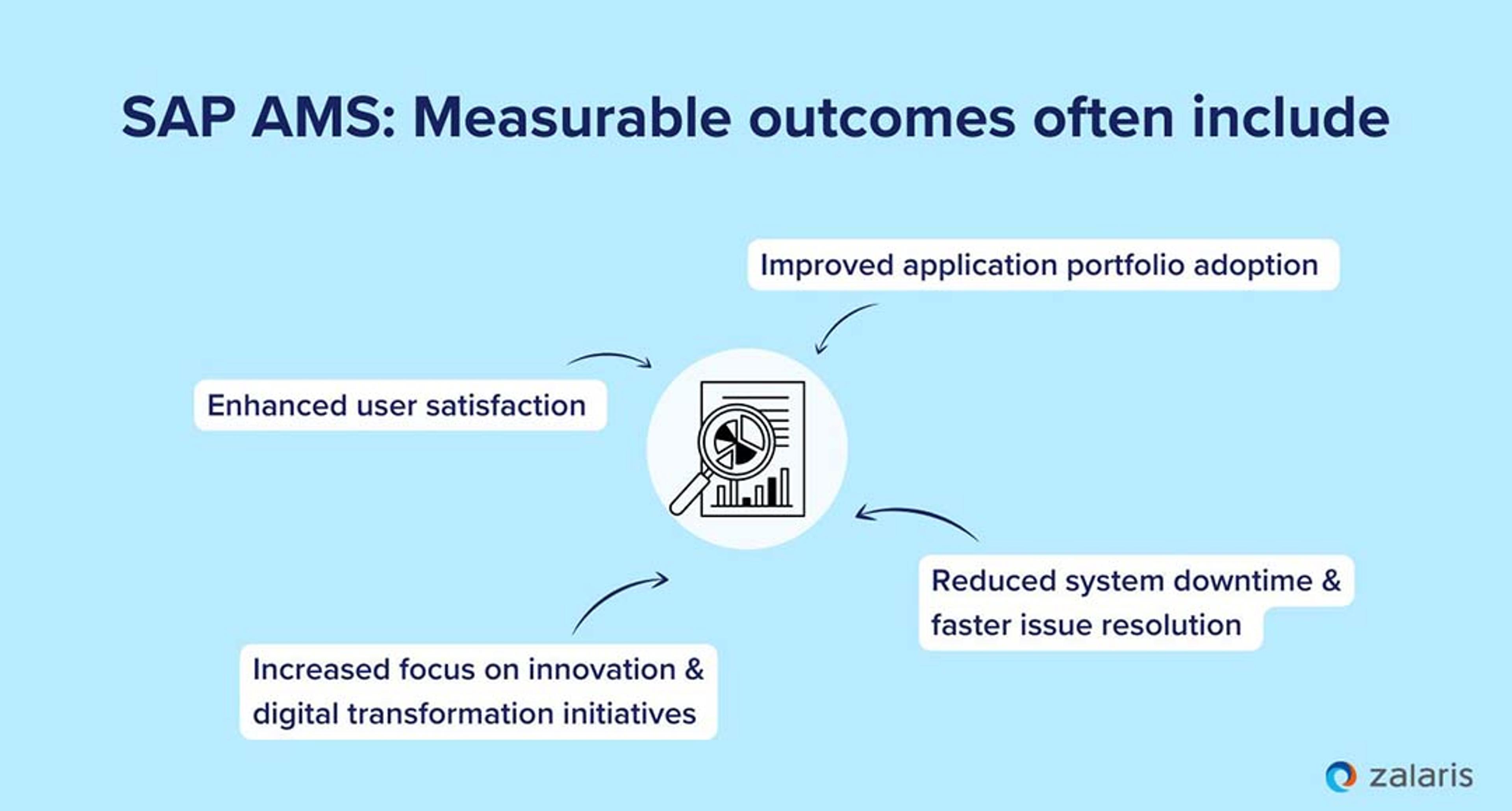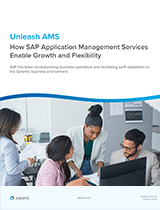Essential strategies for overcoming SAP application support challenges: Expert solutions
SAP Application Management Services (AMS) provide a comprehensive framework to support and manage the lifecycle of SAP applications. These services encompass a variety of tasks, including proactive monitoring, application integration, user training, and recommendations for adapting to evolving business needs.
Zalaris

Understanding SAP Application Management Services (AMS)
SAP Application Management Services (AMS) are vital for maintaining and optimising the SAP ecosystem within organisations. AMS encompasses a broad range of activities designed to support the entire application lifecycle, ensuring that SAP solutions run efficiently and effectively.
Key Services of SAP AMS
- Technical Support: Involves development, integration, and upgrades using technologies like ABAP and HANA.
- Functional Support: Ensures proper configuration of SAP modules and user training.
- System Administration: Routine monitoring, patch management, and problem resolution.
The evolution of SAP support: From traditional to AMS
Challenges with traditional SAP support
Traditional SAP support has been the backbone of enterprise software maintenance for years. However, it comes with its own set of challenges. One of the main issues is the high cost associated with enterprise-level support packages. This can put a strain on businesses, especially those looking to optimise their IT budgets.
Another significant challenge is the rigidity and lack of customisation in standard support packages. These packages may not offer the flexibility to address specific business needs, leaving companies with gaps in their support coverage. Additionally, traditional SAP support often requires forced upgrades, which can be disruptive and costly for organisations.
Rise of Application Management Services
As businesses face these challenges, SAP Application Management Services (AMS) has emerged as a game-changer. AMS offers a more comprehensive and flexible approach to managing SAP applications. It goes beyond traditional support by providing ongoing maintenance and technical assistance for SAP solutions.
SAP AMS aims to help customers maximise the value of their SAP application portfolio by ensuring that their solutions are running smoothly, efficiently, and securely. This shift in support models has led to significant benefits for businesses, including improved efficiency, cost savings, and better alignment with business goals.
Key differentiators of SAP AMS
SAP AMS stands out from traditional support in several ways. One key differentiator is the focus on continuous improvement and innovation. AMS providers offer services such as monitoring and optimisation, helping customers identify areas where they can improve the performance of their SAP solutions.
Another significant advantage is the flexibility in service offerings. SAP AMS allows for customised support solutions that align more closely with specific business needs and challenges. This tailored approach enables businesses to address their unique requirements more effectively.
Moreover, SAP AMS often provides faster response times compared to traditional support. The specialised focus and leaner structures of AMS providers contribute to quicker issue resolution, minimising downtime and improving overall system performance.
By leveraging SAP AMS, businesses can drive digital transformation, streamline their business processes, and optimise their asset management systems more effectively than with traditional support models.
Leveraging SAP AMS for Business Agility
SAP Application Management Services (AMS) has become a pivotal solution for companies looking to boost their business agility. By leveraging SAP AMS, you can enhance your ability to respond swiftly to market changes, streamline your business processes, and make data-driven decisions.
Cost Optimisation and ROI through SAP AMS
SAP Application Management Services (AMS) helps businesses in optimising costs and maximising their return on investment. By leveraging SAP AMS, you can streamline your operations, reduce expenses, and drive measurable business outcomes.
1. Reducing total cost of ownership
One of the most significant advantages of SAP AMS is its ability to lower the total cost of ownership (TCO) for your SAP landscape. Traditional IT support can be expensive, with personnel costs cutting deeper into budgets than ever before.
SAP AMS providers offer a cost-effective alternative. By partnering with an AMS provider, you can reduce operational costs and lower IT operating expenses. This approach allows you to free up internal resources and focus on strategic, value-adding IT project.
2. Maximising SAP investment value
To get the most out of your SAP investment, it’s crucial to use the system to its full potential. SAP AMS helps you achieve this by providing ongoing maintenance, technical assistance, and optimisation services. These services ensure that your SAP solutions are running smoothly, efficiently, and securely.
AMS providers can help you identify areas for improvement and develop solutions to unlock your platform’s capabilities further. They often create training plans to familiarise users with new functionalities, helping your team make the most of system updates and improvements.
3. Measurable business outcomes
The true value of SAP AMS lies in its ability to deliver tangible, measurable business outcomes. By taking an end-to-end business process view, SAP AMS can help you achieve specific goals such as streamlining your order-to-cash process, improving cashflows, and enhancing customer satisfaction.

One company reported operating their engagement services 23% under planned budget for the first three years after implementing SAP AMS. This demonstrates the significant cost savings and efficiency gains that can be achieved through effective application management.
Inching closer to revolutionising your business with Application Management Services
Are you seeking innovative solutions to accelerate your business growth while maintaining flexibility in today’s ever-changing market?
Embarking on an SAP Application Management Services (AMS) implementation can be a daunting task, as organisations often encounter a range of common challenges along the way. From defining project scope to managing user adoption, understanding these challenges is the first step toward overcoming them effectively.
By downloading this whitepaper, you will gain access to expert tips and recommendations on overcoming challenges and ensure successful execution. By understanding these issues beforehand, organisations can better prepare and strategise for effective SAP AMS deployment.
Download whitepaper
Enter your details below to get instant access to exclusive resources.
